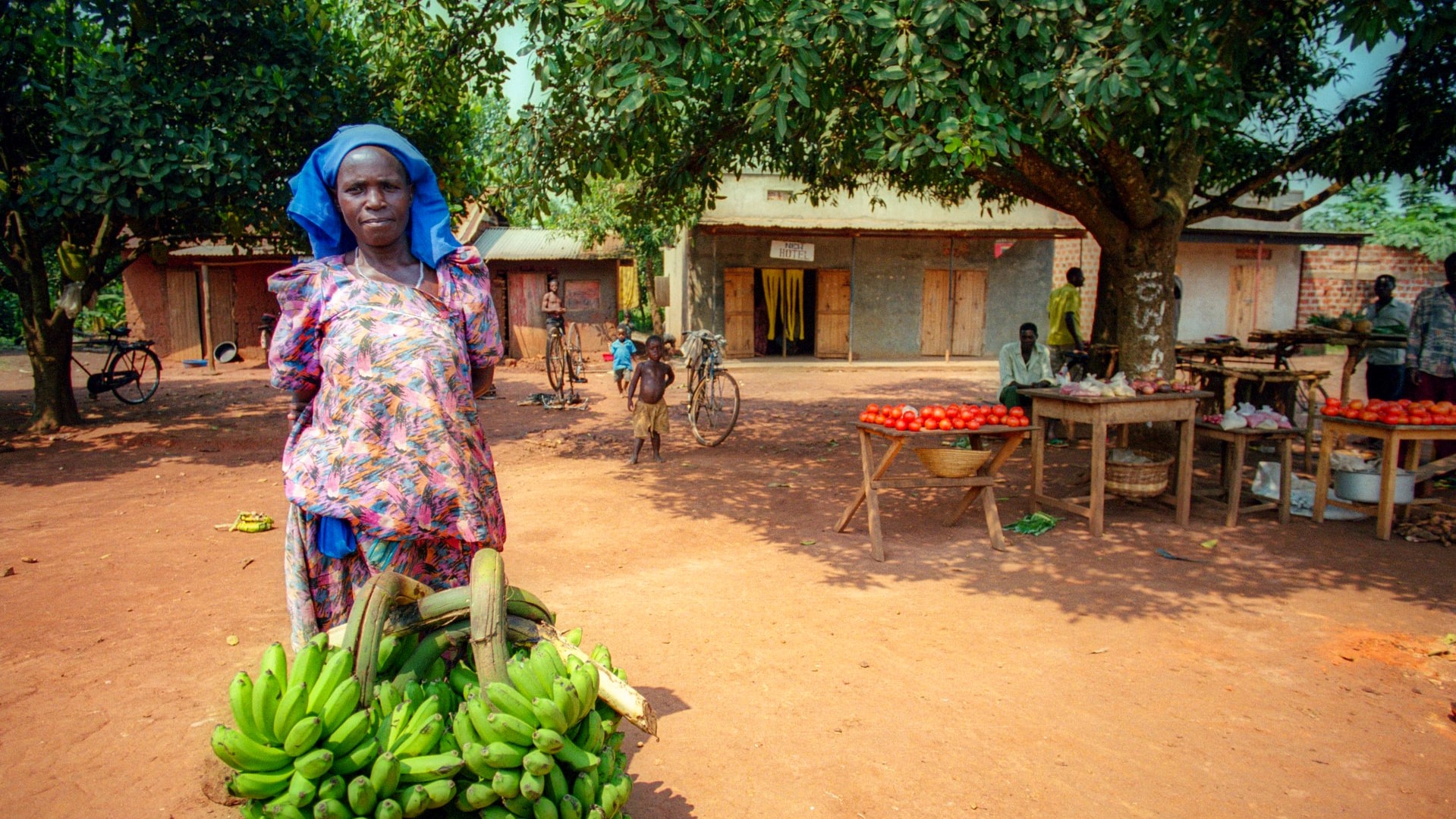New approach to mass mobilization of community labour for restoration of degraded natural resources in Ethiopia - IOE
Rome, 14 September 2021 – The Community-based Integrated Natural Resources Management Project (CBINReMP) in the Federal Democratic Republic of Ethiopia was the first to operationalize and build upon Government guidelines related to mass mobilization of community labour for restoration of degraded natural resources. The latest Impact Evaluation report released by IFAD’s Independent Office of Evaluation (IOE) captures this innovative aspect of the project, and discusses it alongside other important findings.
The Impact Evaluation used a quasi-experimental approach and combined econometric and qualitative techniques to attribute the impact on beneficiaries of the programme. In addition, use was also made of geo-spatial analysis to assess changes related to selected biophysical indicators.
Approved by IFAD’s Executive Board on 30 April 2009, and officially closed on 31 March 2019, the CBINReMP set out to enhance access by poor rural people to natural resources, and improve agricultural production technologies, mainly through the adoption of sustainable land management practices. The total project cost was US$27.31 million, of which IFAD financing was US$13.12 million, including a highly concessional loan of US$6.6 million and a Debt Sustainability Framework grant of US$6.6 million.
In addition to acting upon the Government’s guidelines, the CBINReMP went one step further by providing an unprecedented incentive scheme in the form of rights to cut-and-carry fodder from communal land. Smallholders also benefited from the innovative approach of including land certification as part of sustainable land management – an aspect that also contributed to women’s empowerment. Moreover, wherever family land was registered, co-ownership was assigned to both husband and wife. This guarantees equal rights and protects women's rights if their husbands divorce them or pass away. Indirectly, land certification activities also reduced land degradation and decreased communal land pressure by supporting farmers’ investments in their plots.
The Evaluation found a statistically significant increase in incomes and dietary diversity of households that participated in higher number of project activities. However, for the rest of the beneficiaries the results were not different from those of non-beneficiaries. The limited impact on incomes is also related to the nature of natural resource management projects that have longer gestation periods, and the low investment of the project per beneficiary household.
The project fostered an effective system of communal pasture governance through informal community by-laws, and successfully supported adoption of climate-resilient farming practices, including the diversification of farming systems through fruit tree planting in a small number of micro-sheds. Climate change adaptation practices and technologies for on-farm production improvement were also successful, but should have been implemented in all the 650 sub-watersheds.
Opportunities to address the long-term problem of overgrazing on communal lands were missed, as originally envisaged policy and regulatory reform activities were not implemented. At the community level, the project did not invest in supporting institutions such as watershed management committees and land use committees – a requirement to ensure women’s representation. Instead, planning was done through a top-down approach led by the Government, and implementation was carried out through local extension systems that had little or no capacity. In this context, income-generating activities are expected to be unsustainable in the absence of marketing analysis, clear rights of resource usage and sufficient private sector engagement.
In the future, the Impact Evaluation recommends adopting a master plan for integrated participatory watershed management, to enable the involvement of all stakeholder groups in the management planning and implementation processes. Drawing on other lessons, the report also suggests to align the length of a project’s duration with the time frame of watershed management plans in order to see the effects on beneficiaries’ income, and to embed monitoring and evaluation elements that can better facilitate impact studies in the design of watershed management projects.
In conducting the evaluation, IOE collaborated with the International Food Policy Research Institute (IFPRI).
For further information, please contact Alexander Voccia at [email protected]
Follow us on:



